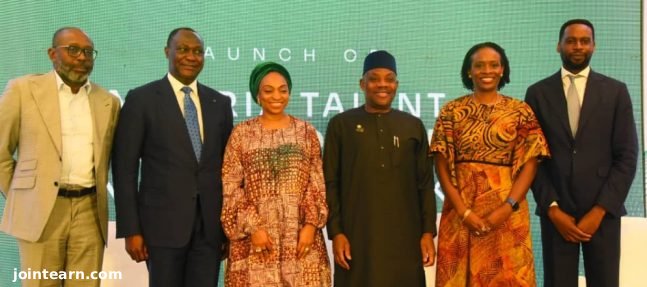
The Federal Government of Nigeria has launched the Nigeria Talent Accelerator Network (NTAN) — a transformative initiative designed to close the nation’s skills gap, boost productivity, and prepare the workforce for the future of work in a rapidly evolving global economy.
The new programme, part of the World Economic Forum’s Reskilling Revolution in Nigeria, is co-chaired by the Federal Ministry of Industry, Trade and Investment and the Federal Ministry of Education, and coordinated by the National Talent Export Programme (NATEP). The launch officially marks Nigeria’s entry into the Global Accelerators Network.
A Step Toward a Competitive Workforce
Speaking in Lagos, Minister of Industry, Trade and Investment, Dr. Jumoke Oduwole, described the initiative as “a decisive step toward building a globally competitive workforce capable of powering Nigeria’s next phase of industrialisation and innovation.”
“The Nigeria Talent Accelerator Network connects policy, industry, and education. It creates a unified platform for employability, productivity, and inclusive economic growth,” she said.
Aligning Education with Labour Market Needs
Minister of Education, Dr. Maruf Alausa, reaffirmed the government’s commitment to aligning education and vocational training with labour market realities. He said the initiative would ensure that Nigerian youth gain future-ready skills, positioning them to compete globally in emerging industries.
Multi-Stakeholder Collaboration
The Accelerator will serve as a collaborative platform linking government agencies, private sector leaders, academic institutions, and civil society. Together, these partners will co-design and implement scalable reskilling and upskilling programmes, bridging talent gaps and aligning education policies with the needs of a digital, data-driven economy.
According to Teju Abisoye, National Coordinator of NATEP,
“Through this collaboration, Nigeria is not only preparing for the future of work but helping to define it. Our coordinated action plan addresses talent gaps while unlocking opportunities for global talent export.”
Focus on Digital and Green Skills
The initiative prioritizes digital literacy, transferable skills, and workforce development for high-growth sectors such as technology, business process outsourcing, and green industries. It also seeks to mobilize public-private partnerships to fund reskilling programmes and deploy data-driven tools to anticipate future skills needs.
Global Partnership with the World Economic Forum
Saadia Zahidi, Managing Director at the World Economic Forum (WEF), welcomed the collaboration, noting that it highlights Nigeria’s leadership in human capital development.
“By investing in people, Nigeria is positioning itself to meet both domestic workforce needs and contribute innovation to the global economy,” Zahidi said.
Strengthening Human Capital and Innovation
Nigeria’s participation in the Global Accelerators Network underscores its dedication to digital inclusion, economic diversification, and human capital transformation.
The Reskilling Revolution, led by the World Economic Forum, aims to provide better education, skills, and economic opportunities to one billion people by 2030. It brings together governments, businesses, and academic institutions to advance national transformation through skill development and innovation.


Leave a Reply